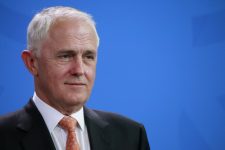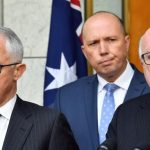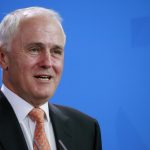Turnbull Attempts to Silence Activist Groups

Last month, the federal government introduced bills to ban foreign donations and require the registration of lobbyists working for foreign interests if they are seeking to influence the Australian political climate.
While the Labor party has indicated support for most of the proposed changes, it has joined a chorus of criticism against a part described as the “GetUp clause” which seeks to expand the definition of ‘associated entities’ to facilitate the prime minister’s “single-minded determination to get GetUp”.
Definition of ‘associated entities’
Under the government’s proposal, ‘associated entities’ would be required to register their political interests and be subject to various reporting and auditing requirements.
The current definition of an associated entity is one which “operates wholly, or to a significant extent, for the benefit of one or more registered political parties”.
However, the government is seeking to expand the definition to include any group that operates “to the detriment of one or more registered political parties in a way that benefits one or more other registered political parties”.
The Australian Electoral Commission and legal commentators suggest this definition would include groups like GetUp, which are vocal in their criticism of the government’s attack on civil liberties and democratic processes generally.
Status of GetUp
GetUp has no structural links to the Labor party or Greens, which are the groups the government claims it supports. Indeed, GetUp does not have membership status with, and is not controlled in any way by, either of those parties or its leaders or members.
GetUp vehemently denies any such political association, describing itself as “an independent movement to build a progressive Australia and bring participation back into our democracy”.
The organisation points out that it receives very little foreign funding – only 0.5% since its inception – and that 97% of its funds come from donations of under $100 by Australians.
GetUp national director, Paul Oosting, has called the “GetUp clause” an unprecedented case of government overreach. “[It] is aimed squarely at shutting down Australians from working together, independent of political parties, to make our country a better place to live,” he stated.
“They’re trying to legislate a gag order on charities fighting to protect the rights of children, people who are homeless and our environment – while letting multinational corporations cut politicians blank cheques,” GetUp said in a media release.
Labor party position
Labor’s Andrew Giles, who is the deputy chair of the joint standing committee on electoral matters, believes the proposed change to the definition of associated entities has nothing to do with foreign interference and everything to do with thwarting political activism.
He says the “GetUp clause” is “completely at odds with the ostensible purpose” of the legislation.
Mr Giles questioned whether the Mr Turnbull “accepts there is a role for a vibrant, activist civil society”, and has indicated the Labor party’s intention to oppose the clause.
Greens Senator Lee Rhiannon is concerned the clause would “severely restrict… community groups’ activities while not touching big Australian corporate political donations” and “… give political advantage to the Liberal and National parties”.
She has indicated the Greens will also be opposing the clause.
Broad reach
The executive director of the Institute of Public Affairs, John Roskam, says the cause could impose obligations and restrictions on a broad range of groups, including professional groups such as the Australian Medical Association, the National Farmers Federation, and even media organisations and churches.
“My concern is it will cast a very wide net at anyone expressing a political opinion,” he remarked. “It’s potentially very dangerous”.
Constitutionality
Constitutional law professor at the University of Sydney, Anne Twomey, says the government’s is “really doubtful in terms of its constitutional validity”.
She points out that the Australian Constitution contains an implied freedom of political communication which is designed to promote a free flow of information that might influence one’s opinion of the federal government.
Ms Twomey explains that a law may be invalid if it unjustifiably impinges upon that freedom.
Indeed, the High Court in Lange v Australian Broadcasting Corporation (1997) essentially found that a law is invalid if it curtails freedom of political communication to the extent that it is incompatible with maintaining a representative and responsible government.
The High Court confirmed the freedom in the case of Unions NSW v New South Wales (2013).
Only time will tell whether the “GetUp clause” is passed and, if so, whether a High Court challenge will be launched.







